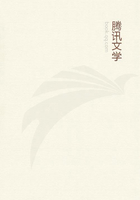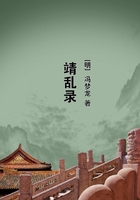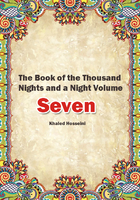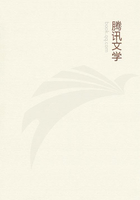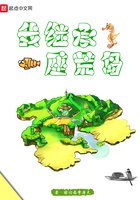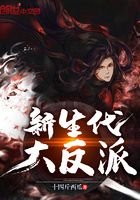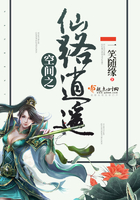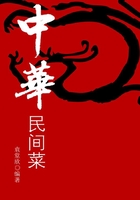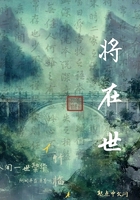"The commands concern prophylaxis and suppression of epidemics, suppression of venereal disease and prostitution, care of the skin, baths, food, housing and clothing, regulation of labour, sexual life, discipline of the people, etc. Many of these commands, such as Sabbath rest, circumcision, laws concerning food (interdiction of blood and pork), measures concerning menstruating and lying-in women and those suffering from gonorrhoea, isolation of lepers, and hygiene of the camp, are, in view of the conditions of the climate, surprisingly rational."[23]
[23] Neuburger: History of Medicine, Oxford University Press, 1910, Vol. I, p. 38.
Divination, not very widely practiced, was borrowed, no doubt, from Babylonia. Joseph's cup was used for the purpose, and in Numbers, the elders of Balak went to Balaam with the rewards of divination in their hands. The belief in enchantments and witchcraft was universal, and the strong enactments against witches in the Old Testament made a belief in them almost imperative until more rational beliefs came into vogue in the eighteenth and nineteenth centuries.
Whatever view we may take of it, the medicine of the New Testament is full of interest. Divination is only referred to once in the Acts (xvi, 16), where a damsel is said to be possessed of a spirit of divination "which brought her masters much gain by soothsaying." There is only one mention of astrology (Acts vii, 43); there are no witches, neither are there charms or incantations. The diseases mentioned are numerous: demoniac possession, convulsions, paralysis, skin diseases,--as leprosy,--dropsy, haemorrhages, fever, fluxes, blindness and deafness. And the cure is simple usually a fiat of the Lord, rarely with a prayer, or with the use of means such as spittle.
They are all miraculous, and the same power was granted to the apostles--"power against unclean spirits, to cast them out, to heal all manner of sickness and all manner of disease." And more than this, not only the blind received their sight, the lame walked, the lepers were cleansed, the deaf heard, but even the dead were raised up. No question of the mandate. He who went about doing good was a physician of the body as well as of the soul, and could the rich promises of the Gospel have been fulfilled, there would have been no need of a new dispensation of science. It may be because the children of this world have never been able to accept its hard sayings--the insistence upon poverty, upon humility, upon peace that Christianity has lost touch no less with the practice than with the principles of its Founder. Yet, all through the centuries, the Church has never wholly abandoned the claim to apostolic healing; nor is there any reason why she should. To the miraculous there should be no time limit--only conditions have changed and nowadays to have a mountain-moving faith is not easy. Still, the possession is cherished, and it adds enormously to the spice and variety of life to know that men of great intelligence, for example, my good friend, Dr. James J. Walsh of New York, believe in the miracles of Lourdes.[24] Only a few weeks ago, the Bishop of London followed with great success, it is said, the practice of St.
James. It does not really concern us much--as Oriental views of disease and its cure have had very little influence on the evolution of scientific medicine--except in illustration of the persistence of an attitude towards disease always widely prevalent, and, indeed, increasing. Nor can we say that the medicine of our great colleague, St. Luke, the Beloved Physician, whose praise is in the Gospels, differs so fundamentally from that of the other writings of the New Testament that we can claim for it a scientific quality. The stories of the miracles have technical terms and are in a language adorned by medical phraseology, but the mental attitude towards disease is certainly not that of a follower of Hippocrates, nor even of a scientifically trained contemporary of Dioscorides.[25]
[24] Psychotherapy, New York, 1919, p. 79, "I am convinced that miracles happen there. There is more than natural power manifest."
[25] See Luke the Physician, by Harnack, English ed., 1907, and W. K. Hobart, The Medical Language of St. Luke, 1882.
CHINESE AND JAPANESE MEDICINE
CHINESE medicine illustrates the condition at which a highly intellectual people may arrive, among whom thought and speculation were restricted by religious prohibitions. Perhaps the chief interest in its study lies in the fact that we may see today the persistence of views about disease similar to those which prevailed in ancient Egypt and Babylonia. The Chinese believe in a universal animism, all parts being animated by gods and spectres, and devils swarm everywhere in numbers incalculable. The universe was spontaneously created by the operation of its Tao, "composed of two souls, the Yang and the Yin; the Yang represents light, warmth, production, and life, as also the celestial sphere from which all those blessings emanate; the Yin is darkness, cold, death, and the earth, which, unless animated by the Yang or heaven, is dark, cold, dead. The Yang and the Yin are divided into an infinite number of spirits respectively good and bad, called shen and kwei; every man and every living being contains a shen and a kwei, infused at birth, and departing at death, to return to the Yang and the Yin. Thus man with his dualistic soul is a microcosmos, born from the Macrocosmos spontaneously. Even every object is animated, as well as the Universe of which it is a part."[26]
[26] J. J. M. de Groot: Religious System of China, Vol. VI, Leyden, 1910, p. 929.

